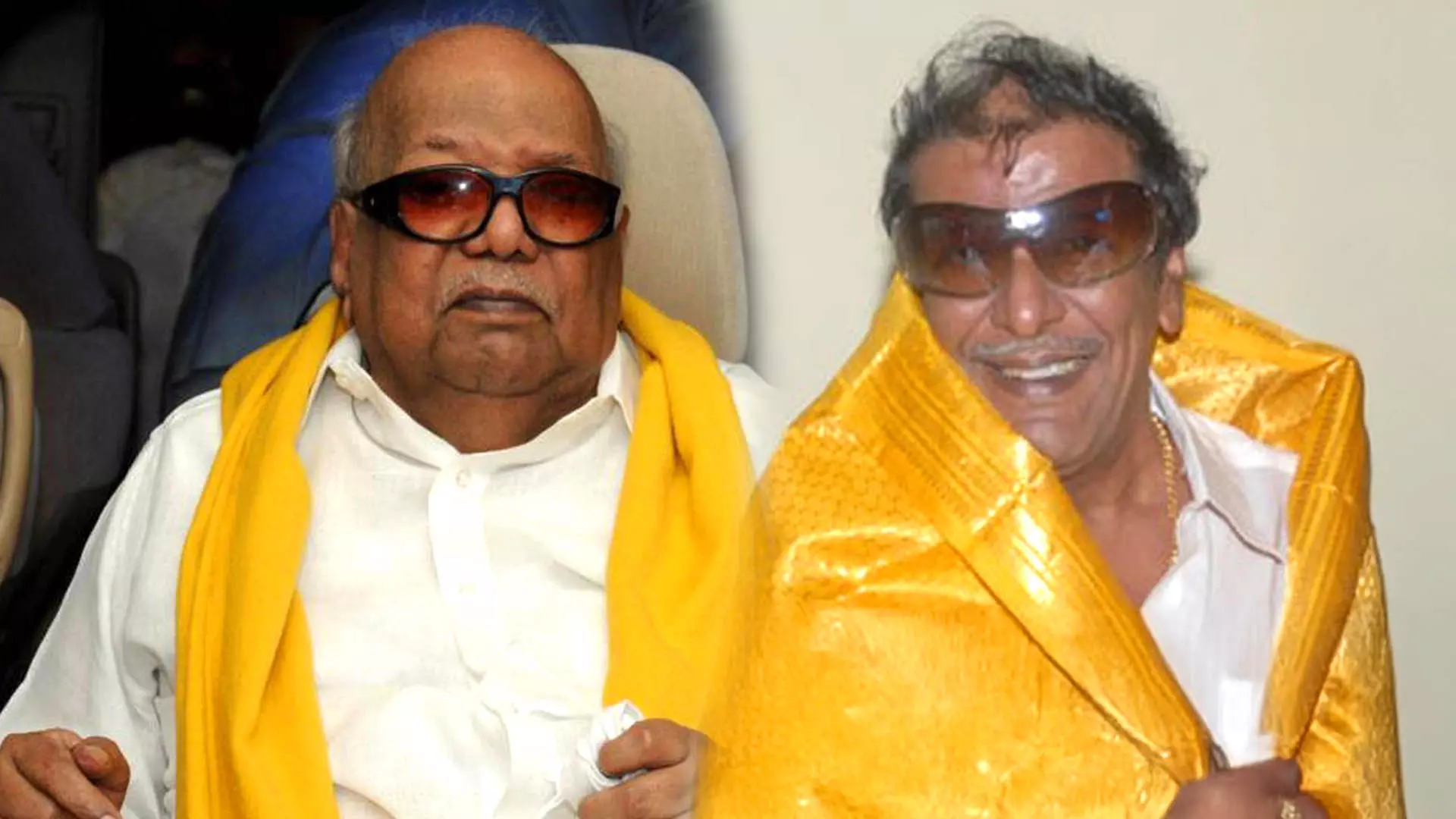
Why Stalin's half-brother Muthu's film and political career fizzled out | Interview
Senior political analyst R Rangaraj explains the fragile dynamics within the Karunanidhi family, the DMK’s historical discomfort with film stars, and how Muthu’s sidelining reflects a deeper pattern of control and image curation in Dravidian politics

The passing of M K Muthu, the eldest son of former Tamil Nadu Chief Minister M Karunanidhi, has reopened conversations about his troubled legacy within the DMK’s first family. Once groomed for stardom and political relevance, Muthu's career fizzled out amid personal differences, political shifts, and familial estrangement.
Also read: MK Muthu obit: Karunanidhi’s son’s acting stint created a split in DMK
In this interview, senior journalist R Rangaraj reflects on the arc of Muthu's life, his fallout with the DMK, and the undercurrents of dissent within the party’s powerful family.
How important was M K Muthu’s contribution to the DMK and its early years?
Not much, to be honest. In the early days, he acted in several plays and films more as a propaganda tool for the DMK and the Dravidian movement. His prominence rose around 1972, during a time of growing tension between matinee idol M G Ramachandran (MGR) and Karunanidhi. Although Karunanidhi became Chief Minister with MGR's support after CN Annadurai’s death, the relationship between the two began to deteriorate.
When Muthu entered films, MGR initially blessed his career. But as it became clear that Karunanidhi might be grooming Muthu to rival MGR — both politically and in cinema — tensions erupted. This rivalry ultimately led to MGR being suspended from the DMK, a major turning point in Tamil Nadu politics.
What led to the rift between Muthu and his father Karunanidhi?
It started with Karunanidhi promoting Muthu’s film career. He even wrote screenplays and dialogues for his son’s movies. However, Muthu never quite made a mark. He imitated MGR’s acting style, dress, and gestures, which perhaps felt forced to the audience. After a couple of moderately successful films, his later movies flopped. Karunanidhi gradually lost interest in promoting his son’s career, both in films and politics.
This left Muthu to fend for himself. He eventually faded from the public eye by the mid-70s. There were reports that he struggled with alcoholism and underwent de-addiction treatment. Personal health issues and his increasingly critical attitude towards his father further widened the rift. Eventually, Karunanidhi abandoned his plans to groom him altogether.
Did internal family politics prevent Muthu from pursuing a proper political career?
Yes, Muthu was never given serious political responsibilities. His presence in DMK politics was nominal, more due to family affiliation than real influence. The strained relationship with Karunanidhi, coupled with Muthu’s lack of mass appeal, meant he was sidelined. The situation worsened when Muthu joined the AIADMK during Jayalalithaa’s tenure as Chief Minister. That move was seen as a deep betrayal by the DMK family and further distanced him from their political circle.
It wasn’t until 2008, when Muthu fell seriously ill, that Karunanidhi reconciled with him. By then, however, Muthu had withdrawn from public life entirely and was no longer a visible figure in film, politics, or even family events.
What was the relationship like between M K Stalin and M K Muthu?
Stalin, being Muthu’s half-brother, maintained a cordial but distant relationship. In his condolence message, Stalin described Muthu as an affectionate person with aspirations in both film and politics. However, there’s no indication of a close bond between them. Muthu had distanced himself from the family, and even accepted financial assistance from Jayalalithaa during tough times, which likely didn’t sit well with the DMK leadership.
While Stalin did eventually visit Muthu when he was hospitalised in 2009, it’s hard to describe their relationship as warm or deeply personal.
Was Muthu excluded from family and DMK functions because of his dissent?
Yes, his presence was virtually nonexistent in private and public DMK events. The party and family kept him at a distance. He became a symbolic example of how dissent or deviation from the core leadership line is treated within the DMK’s first family.
Karunanidhi’s other son, M K Alagiri, also had a turbulent relationship with the family. Despite being made a Union Minister and MP, Alagiri felt overshadowed by Stalin. When Karunanidhi consistently gave key roles to Stalin, Alagiri demanded similar importance. The family feud eventually spilled into the party and government, and Karunanidhi’s failure to contain it damaged the DMK’s public image.
How does the DMK family handle internal dissent?
There’s a history of dissenters being pushed to the margins. Family disputes have often made their way into the political sphere, which ideally should have been avoided. Karunanidhi failed to resolve such differences internally, and that led to factionalism and embarrassment for the party.
Today, Alagiri has taken a backseat. Stalin has made symbolic gestures of reconciliation — like meeting Alagiri recently — but it's clear that power within the DMK is tightly held. Other family members like Kanimozhi and Dayanidhi Maran remain active in politics, while disputes like the one between Dayanidhi and Kalanithi Maran over Sun TV shares appear to have been settled.
So for now, the DMK’s first family appears unified. But the legacy of sidelining dissent, as seen in Muthu’s case, remains a cautionary tale in Tamil Nadu’s political history.
(The content above has been generated using a fine-tuned AI model. To ensure accuracy, quality, and editorial integrity, we employ a Human-In-The-Loop (HITL) process. While AI assists in creating the initial draft, our experienced editorial team carefully reviews, edits, and refines the content before publication. At The Federal, we combine the efficiency of AI with the expertise of human editors to deliver reliable and insightful journalism.)

